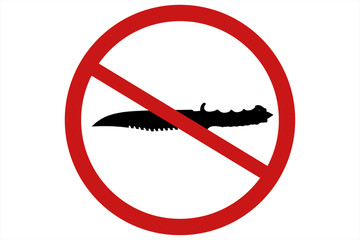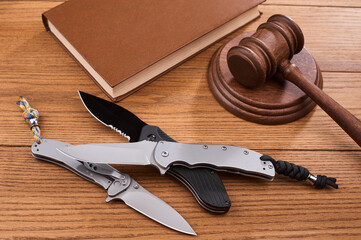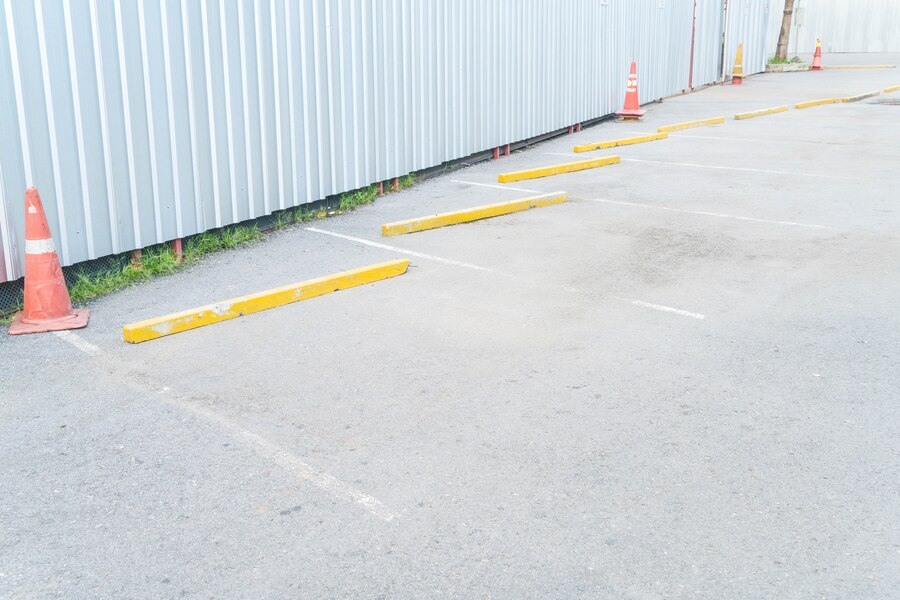Understanding state-specific regulations can be tricky, especially when it comes to something as nuanced as knife laws. For residents and visitors of Michigan, staying informed about the state’s knife regulations is crucial for ensuring compliance and safety. This article delves into the specifics of Michigan knife laws as of 2023, providing essential information to keep you on the right side of the law.
Overview of Michigan Knife Laws in 2023
Michigan’s legal framework regarding knives underwent significant alterations over the years. As of 2023, the state has established several fundamental statutes governing the ownership and carrying of knives, whether openly or concealed.
What You Can Own
In Michigan, individuals are legally allowed to own various types of knives. These include:
- Folding Knives: There are no explicit restrictions on owning folding knives in Michigan. These knives, characterized by their hinged design that allows the blade to fold into the handle, are widely used for everyday tasks such as cutting boxes, opening packages, and general utility purposes.
- Fixed-Blade Knives: Similarly, fixed-blade knives are permissible to own within the state. These knives differ from folding knives in that the blade is permanently extended from the handle, offering increased durability and strength. However, specific regulations govern their carrying.
- Switchblades: Notably, Michigan residents can now legally possess switchblades following amendments to the state’s legislation. Switchblades, also known as automatic knives, feature blades that deploy from the handle with the press of a button or switch.
- Other Blades: Michigan law permits the ownership of various other bladed weapons, including dirks, daggers, and stilettos. These knives, characterized by their specific designs and historical usage, are subject to the same regulations as other knife types in the state.
Key Prohibitions
While Michigan allows ownership of certain types of knives, there are notable restrictions and prohibitions regarding their carrying and usage. These include:
- Carrying Knives in Certain Locations: It is illegal to carry knives in specific locations, such as school property, courts, or other designated public buildings. These restrictions aim to ensure public safety and prevent potential incidents involving knives in sensitive environments.
- Intent to Harm: Carrying any knife with the intent to harm another person is strictly prohibited in Michigan, irrespective of the type of knife being carried. This provision underscores the state’s commitment to preventing violence and protecting its citizens from harm.
Legal Definitions and Classifications
Understanding how Michigan classifies different types of knives is essential for complying with Michigan knife laws in 2023. Here’s a brief rundown:
Pocket Knife
A pocket knife is broadly defined as any knife equipped with a folding blade measuring less than 3 inches in length. This category encompasses knives designed for everyday carry and utility tasks. Here are some key points regarding pocket knives:
- Size Limitation: Blades must be under 3 inches in length to fall under the pocket knife classification.
- Utility Focus: These knives are primarily intended for general utility purposes, such as cutting packages, opening letters, or performing minor tasks.
- Exemption from Restrictive Laws: Pocket knives are typically exempt from the more stringent regulations imposed on other types of knives due to their compact size and utility nature.
- Common Usage: They are popular among a wide range of users, including outdoor enthusiasts, craftsmen, and individuals seeking a versatile cutting tool.
- Variety of Designs: Pocket knives come in various designs, including traditional slip joint mechanisms, modern assisted-opening mechanisms, and multi-tools incorporating additional functions such as screwdrivers and bottle openers.
Switchblade
In contrast to pocket knives, switchblades are defined by a mechanism that automatically deploys the blade when hand pressure is applied to a button or similar device on the handle. Understanding the characteristics of switchblades is essential due to their distinct features and legal considerations:
- Automatic Deployment: Switchblades are known for their rapid blade deployment, making them highly convenient for quick access.
- Legal Scrutiny: These knives face stricter regulations compared to pocket knives due to concerns regarding their potential misuse or association with illegal activities.
- Emergency Utility: Despite legal restrictions, switchblades serve a practical purpose in emergency situations or for individuals with limited dexterity.
- Regulatory Compliance: Individuals in possession of switchblades must be aware of and adhere to specific laws governing their use and carry to avoid legal ramifications.
- Historical Context: The regulation of switchblades dates back to the mid-20th century, with concerns over their association with criminal activities leading to various legislative measures aimed at restricting their availability and use.
Fixed-Blade Knife
Fixed-blade knives are characterized by their stationary blade, which does not fold into the handle. These knives are often carried in sheaths attached to belts or other carrying equipment. Exploring the features of fixed-blade knives provides insight into their utility and legal considerations:
- Sturdy Design: Fixed-blade knives are renowned for their durability and strength, making them ideal for demanding tasks such as hunting, camping, and wilderness survival.
- Versatility: They are favored by outdoor enthusiasts, hunters, and survivalists for their versatility and reliability in various situations.
- Legal Implications: While fixed-blade knives offer practical advantages, users must be cognizant of the regulations governing their possession and carry to ensure compliance with Michigan knife laws.
- Customization Options: Fixed-blade knives often allow for customization, including blade shape, handle material, and sheath design, catering to individual preferences and practical needs.
Carrying Knives: Open vs. Concealed
In Michigan, the distinction between open carry and concealed carry of knives is significant:
Open Carry
Open carry refers to the legal practice of visibly carrying a knife in public. In Michigan, open carry of most types of knives is permitted as long as the blade is visible, and the individual is not in a restricted area. Here are key points regarding open carry:
- Visibility Requirement: The blade of the knife must be visible to others. This typically means carrying the knife in a sheath attached to a belt or openly clipped to a pocket or waistband.
- Legal Permissibility: Open carry is generally allowed for most types of knives, including pocket knives, provided they meet the visibility requirement.
- Public Restrictions: While open carry is permitted in many public spaces, certain locations may have restrictions or prohibitions on the open carry of knives, such as schools, government buildings, or other designated areas.
- Educational Outreach: Organizations and advocacy groups often conduct educational campaigns to inform individuals about their rights and responsibilities regarding open carry of knives, emphasizing safety and legal compliance.
Concealed Carry
Concealed carry involves carrying a knife in a manner where it is not visibly discernible, such as in a pocket or under clothing. In Michigan, concealed carry of knives is subject to stricter regulations, particularly for certain types of knives like switchblades or fixed-blade knives longer than 3 inches. Here are important considerations regarding concealed carry:
- Regulatory Scrutiny: Concealed carry of knives is subject to heightened scrutiny and regulations compared to open carry due to the potential for misuse or concealed weapon violations.
- Restricted Knife Types: Certain types of knives, such as switchblades or fixed-blade knives exceeding 3 inches in length, may face additional restrictions or prohibitions on concealed carry.
- Legal Consequences: Violating concealed carry regulations can result in legal consequences, including fines, confiscation of the knife, and potential criminal charges depending on the circumstances.
- Educational Resources: Law enforcement agencies and legal advocacy organizations provide educational materials and resources to educate the public about the legal requirements and implications of concealed carry, aiming to reduce inadvertent violations and promote responsible knife ownership.
- Public Awareness Campaigns: Public awareness campaigns raise awareness about the importance of responsible knife carrying practices, encouraging individuals to understand and comply with the law to promote community safety.
Places Where Knives are Prohibited

Certain areas in Michigan restrict or completely prohibit the carrying of knives:
Schools and Educational Institutions
Schools and educational institutions prioritize the safety and well-being of students, faculty, and staff. As such, they enforce strict policies regarding weapons, including knives. Here’s a comprehensive look at knife restrictions in schools:
- Zero-Tolerance Policies: Many schools maintain zero-tolerance policies towards weapons, including knives, on their premises. This means that any possession of knives, regardless of intent, is strictly prohibited.
- Legal Ramifications: Violating knife restrictions in schools can lead to severe consequences, such as expulsion, suspension, or even criminal charges. These repercussions can have long-term effects on a student’s academic and professional future.
- Educational Initiatives: Schools often conduct educational programs aimed at raising awareness among students, parents, and faculty about the dangers of weapons in educational settings. These initiatives emphasize the importance of maintaining a safe and secure learning environment.
Courthouses and Courtrooms
Courthouses and courtrooms are essential venues for upholding justice and the rule of law. To maintain order and security within these facilities, strict regulations regarding weapons, including knives, are enforced. Here’s what you need to know:
- Security Protocols: Courthouses typically employ stringent security measures, such as metal detectors and bag searches, to prevent weapons from entering the premises. These measures are in place to safeguard the integrity of legal proceedings and protect all individuals within the courthouse.
- Legal Consequences: Attempting to bring a knife into a courthouse or courtroom can result in immediate confiscation of the weapon, as well as legal repercussions such as contempt of court charges. It’s essential to adhere to all security protocols and regulations when visiting these facilities.
- Exceptions: In certain circumstances where individuals require knives for legitimate purposes related to court proceedings (e.g., attorneys, law enforcement officers), special arrangements may be made with court security personnel. However, such exceptions are rare and subject to strict scrutiny.
Places of Religious Worship
Places of religious worship are sacred spaces where individuals gather for spiritual reflection, prayer, and communal activities. To maintain a peaceful and respectful atmosphere, many religious institutions have policies in place regarding the carrying of knives. Here’s what you should know:
- Respectful Conduct: Out of reverence for the sanctity of religious spaces and the comfort of worshippers, knives are often discouraged or prohibited within places of worship.
- Cultural Sensitivity: Different religious traditions may have specific guidelines or customs regarding the presence of weapons, including knives, within their places of worship. It’s important to respect and adhere to these cultural norms.
- Community Guidelines: Religious organizations may establish their own policies regarding the carrying of knives on their premises, which attendees are expected to adhere to as a sign of respect and consideration for others.
Public Gatherings or Demonstrations
Public gatherings and demonstrations serve as platforms for people to express their views, advocate for causes, and engage in civic discourse. However, the potential for conflicts or violence in such settings necessitates restrictions on the carrying of knives. Here’s what you need to know:
- Risk Mitigation: Prohibiting knives at public gatherings or demonstrations helps mitigate the risk of altercations escalating into violence and ensures the safety of all participants and bystanders.
- Law Enforcement Oversight: Law enforcement agencies often monitor public gatherings and demonstrations to enforce weapon restrictions and maintain public order. Any individual found in violation of these restrictions may face legal consequences.
- Promotion of Peaceful Engagement: Participants are encouraged to engage in peaceful and constructive dialogue at public gatherings and demonstrations, refraining from actions or behaviors that could incite violence or harm. Respecting weapon restrictions is crucial for fostering a safe and inclusive environment for all attendees.
Penalties for Violation of Knife Laws
Violating Michigan knife laws in 2023 can lead to various penalties ranging from fines to imprisonment, depending on the severity of the violation. Common penalties include:
Misdemeanors for Minor Violations
Minor violations of Michigan knife laws typically result in misdemeanor charges, which carry lesser penalties compared to felonies. These misdemeanors may involve actions such as carrying a knife in a restricted area or possessing a prohibited type of knife. Here’s what you need to know about misdemeanor penalties:
- Fines: Individuals found guilty of misdemeanor knife law violations may face monetary fines as a penalty. The amount of the fine can vary depending on the specific circumstances of the violation and the discretion of the court.
- Probation: In some cases, individuals may be placed on probation as part of their sentence for misdemeanor knife law violations. Probation typically involves regular check-ins with a probation officer and compliance with certain conditions, such as community service or counseling.
- Community Service: Courts may order individuals convicted of misdemeanor knife law violations to perform community service as a form of restitution to the community.
- Educational Programs: As an alternative or supplementary penalty, individuals may be required to attend educational programs or counseling sessions aimed at preventing future offenses and promoting responsible behavior.
Felonies for Severe Violations
Severe violations of Michigan knife laws, particularly those involving the use of a knife in the commission of a crime, can result in felony charges. Felonies carry more severe penalties, including lengthy imprisonment terms and significant fines. Here’s an overview of the penalties for felony knife law violations:
- Imprisonment: Individuals convicted of felony knife law violations may face imprisonment in a state correctional facility. The length of imprisonment can vary depending on factors such as the nature of the offense, the defendant’s criminal history, and the sentencing guidelines.
- Substantial Fines: Felony convictions often entail substantial monetary fines as part of the sentence. These fines can amount to thousands of dollars, in addition to any other penalties imposed by the court.
- Loss of Rights: Felony convictions can result in the loss of certain civil rights, such as the right to vote, possess firearms, or hold certain professional licenses. These collateral consequences can have long-lasting effects on the individual’s life and opportunities.
- Parole or Probation: Upon release from prison, individuals convicted of felony knife law violations may be placed on parole or probation, subject to strict supervision and compliance with conditions set by the court or parole board.
Conclusion
Staying informed about Michigan knife laws in 2023 is crucial for anyone looking to own or carry a knife within the state. By understanding the specifics outlined in this guide, residents and visitors can ensure they navigate these laws effectively and safely. Whether you’re a collector, a hobbyist, or someone who carries a knife for work, knowing these details will help you avoid legal issues and use knives responsibly.
In summary, while Michigan offers considerable freedom regarding knife ownership, the laws around carrying them, especially concealed, require attention and compliance to avoid penalties. As always, it’s advisable to consult legal counsel if you have specific questions or encounter legal issues involving knives in Michigan.
FAQ
A1: Yes, as of the latest laws in 2023, switchblades are legal to own and carry in Michigan, though carrying them concealed may require meeting certain conditions.
A2: Michigan law does not prohibit the ownership of any specific type of knife, but carrying certain knives in public places may be restricted.
A3: There are no specific age restrictions for carrying knives openly in Michigan, but minors should have parental permission to carry or use knives responsibly.



